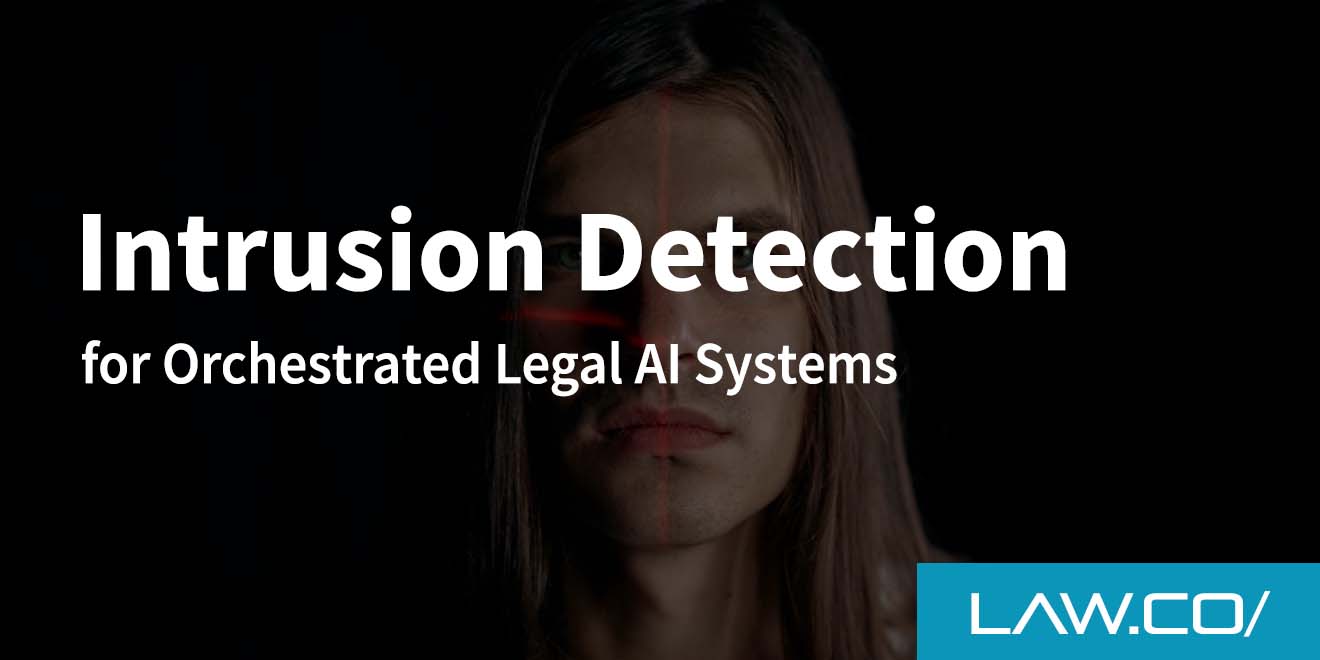

How to Launch Your Legal Podcast (and Why Podcasts for Lawyers Are So Valuable)
It seems like everyone has a podcast these days – so why can’t you?As a lawyer, your first job and main priority will always be serving your clients. But if you have some extra time, or if you have some charismatic partners and employees who’d be perfect fits as podcast hosts, there’s a lot you can gain from starting a legal podcast of your own.

As of 2023, there are 464.7 million podcast listeners around the world, with over 100 million in the U.S. alone. Half of people ages 12-34 listen to podcasts regularly, and the average American listens to about 8 podcast episodes every week.That’s a huge market you can potentially tap.And as we’ll see, accumulating a large audience isn’t the only benefit of starting a podcast connected to your legal practice.So what exactly are the benefits? Why should you start a legal podcast? And how can you do it successfully?
Why You Should Start a Legal Podcast

Starting and managing a legal podcast connected to your law firm can benefit you in several ways:
- Inexpensive marketing. First and foremost, you can see this as a form of inexpensive marketing. Just as content marketing and social media marketing rely on providing people with information, they'd naturally seek out anyway, this is an opportunity for you to appeal to your target audience, reach them in a dynamic new way, and persuade them that your law firm and your legal services are desirable. You can also use your podcast to market your law firm in many different ways, across different platforms.
- Brand reputation. Hosting a podcast can also be valuable for your reputation, both personally and on behalf of your brand (when applicable). With each episode, you'll cover a new topic relevant to people interested in the law, and you'll share your thoughts that establish you as a thought leader. Over time, you'll build an audience, interview bigger guests, and entrench yourself as a leader in this industry. This can be very powerful for your public image and your ability to attract new clients.
- Referrals. Of course, this is also a great way to get referrals. Your most loyal podcast listeners will be happy to send friends, family members, and neighbors your way if they trust your advice and see you as an expert.
- Recruiting. Legal podcasts are also a way to market your business for easier recruiting and hiring. Talented young legal professionals who hear your podcast episodes and recognize your authority will be more likely to apply for job openings at your law firm.
- Networking. It's hard to make a podcast alone. In the course of developing this content channel, you'll meet tons of new people, especially if you interview them on your show. It's a great way to build new connections, which can then help you in many ways.
- Secondary revenue generation. And let's not forget that starting a legal podcast is also a secondary form of revenue generation for your law firm. In addition to making money conventionally and earning more referrals, you can make money from your podcast by hosting advertising, including affiliate links in materials related to your podcast, selling merchandise, hosting live shows, and more.
Developing a Plan for Your Legal Podcast

Before you set up a microphone and hit record to spill your thoughts, take a step back. If you want your podcast to be successful, you need to treat it like you would any business – you need to establish a business plan first.Spend some time researching your legal podcast environment. Who are the key demographics you're going to target? What types of topics are you going to cover? Who are your biggest competitors? And how can you gain a competitive edge?
- Establish your objectives. First, establish your objectives. What are you trying to achieve with this legal podcast? Is your primary focus to generate revenue, accumulate new clients, or just build your brand reputation? How many episodes per week are you going to distribute? And how are you going to grow your audience, generally?
- Select a niche. There are millions of podcasts inactive publication and distribution that see few, if any listeners. If you want to stand out and attract a loyal base of listeners, you need to select a niche. In other words, you need a specific topic, approach, or audience that allows you to distinguish yourself from the competition and focus on appealing to a narrower slice of podcast listeners. For example, you could focus on studying specific cases, reviewing Supreme Court decisions, interviewing legal professionals, covering topics related to your area of specialty, or even discussing how to get through law school.
- Decide on a format. How do you want to format your podcast? Are you going to host it alone and discuss all your own thoughts on each matter? Are you going to have a cohost and bounce ideas back and forth? Are you going to interview a new person each week? There are strengths and weaknesses to each approach; for example, hosting by yourself can put an extra burden on you to be charismatic and interesting, but finding interesting new people to interview each week can also be troublesome. Additionally, consider producing your podcast in both video and audio format simultaneously by recording a video; this way, you can distribute your podcast across more platforms and reach more people.
- Create a brand. At this point, you'll be ready to create a brand for your legal podcast. Come up with a catchy name that adequately captures the strategies and intentions behind your podcast; ideally, it will also include some strategic keywords so you can more easily practice podcast search engine optimization (SEO). Then, hire a professional to help you design a logo and other brand assets to support you in promoting this work.
- Map out a distribution plan. Next, map out a distribution plan. Where and how are you going to feature your podcast? There are many online services that make it easy for you to distribute your audio podcast across a wide variety of podcast networks. Essentially, you'll upload the podcast in one location and it will be available on Apple, Spotify, and tons of other channels automatically. You'll also need to make plans for how to distribute pieces of your podcast on other channels. For example, are you going to put the video on YouTube? Are you going to chop it up into smaller clips and distribute those across social media? Are you going to take the transcript and turn it into a written article on your website's blog?
- Get the equipment you need. Selecting gear for your podcast is no trivial matter, and you could go down a deep rabbit hole trying to find the right equipment for your setup. That said, it's possible to get a professionally sounding podcast with even the most basic modern equipment. As long as you have a computer for editing, a decent quality microphone, an audio interface, a set of headphones for good monitoring, a camera with lighting to capture video, and some miscellaneous installations to reduce noise and problematic audio, you'll be in a good place to start. Remember that you can upgrade and replace each of these components as you gain more experience.
Producing Your First Podcast as a Lawyer

At this stage, you should be ready to produce your first podcast episode.Here are the steps you'll need to follow to get there:
- Start a calendar. Consider starting by creating a content calendar. Hopefully, you already know how many podcast episodes you want to produce in a given week or month. Now is the time to schedule the production of those episodes and determine the topics you want to cover. Try to plan your podcasts at least a month or two in advance (unless you're covering current events that are unpredictable), so you always have new material to produce. As you start producing new episodes, replace them in the calendar with future episodes so you can stay ahead of the game.
- Create an ideal recording environment. Next, set up your recording environment. For the best audio quality, you should choose a location that's relatively small, excellently insulated, and free from any distracting noise. Good lighting is another plus. You might be able to use a meeting room in your office or an extra room of your house – but you'll probably need to make adjustments, such as installing acoustic panels, to ensure the highest quality.
- Run some tests. When you think you've got your recording environment set up properly, run some tests. Record yourself talking about literally anything, then review how you look and sound in a finished video. Does it look and sound professional? Or are there specific issues that need to be ironed out? Troubleshoot each individual problem until you get closer to the quality you desire.
- Invite your first guests. When you feel confident that you can produce professional quality content, invite your first guests (if applicable). If you're not sure who to invite for your podcast, start with people you already know. Other lawyers, judges, legal writers, and other people connected to the law are all excellent candidates, assuming they have something interesting to say and a unique perspective.
- Edit. You may feel like you're finished when you complete the initial recording, but you'll need to take a few extra steps to ensure the best quality. That means using editing software to clean up any glitches, hiccups, embarrassing mistakes, and audio issues. Podcast editing is a complex topic, but you'll likely be fine with only the fundamentals to start. As you gain more experience, you'll become a better editor.
- Reformat and package. In addition to publishing a full podcast episode in video and audio formats, it’s a good idea to take snippets from the show, reformat them, and package them for other platforms (like social media). Take some of the most interesting portions of your conversation, isolate them, and set them aside for this purpose.
- Upload and distribute. At this point, you should have your full podcast episode, as well as several clips, ready to go. Upload these to the appropriate distribution platforms and begin distributing them.
- Promote. Unfortunately, even if your podcast is truly amazing, no one is going to listen to it unless you actively promote it. You can start by promoting to your existing audience, including people you know personally; email campaigns, notifications on your website, and word of mouth can all help you here. From there, it's a good idea to consider spending extra money on digital marketing strategies like SEO, pay per click (PPC) ads, and sponsorships.
Additional Keys for Success: Building Your Legal Podcast
As you begin producing and distributing more episodes of your legal podcast, it's important to follow these keys for success:
- Produce content consistently. Consistency is indispensable for building a loyal audience. When people know what quality of content they can expect and when they can expect it, they're much more likely to tune in regularly. Consider committing to one new podcast episode every week, and try to make each new podcast episode as good as the last.
- Competitively differentiate. There are already at least a few legal podcasts somewhat similar to yours, so find a way to competitively differentiate your brand. Can you cover slightly different topics? Are you going to present those topics in a different style? Should you adopt a different tone or speak to a different target audience?
- Network with other podcasters. Spend time networking with other podcasters. It's a great way to learn tips and tricks for podcast production, and it might land you a spot as an interview guest, which will give you more exposure and give you a chance to promote your work. It's also a fantastic way to find new people to interview and cross-pollinate your audiences.
- Stay relevant to your audience. Speaking of audiences, try to stay relevant to yours. As your podcast begins to grow, pay attention to the types of listeners you attract and do what you can to appeal to them specifically.
- Experiment with monetization. Direct revenue generation may not be your main goal, but it’s worth exploring. See how much money you can make with strategies like advertising or affiliate links.
Are you looking for new ways to market your law firm?Are you feeling stuck, using the same old digital marketing strategies?Law.co can help. We specialize in search engine optimization (SEO) and have experts in a wide range of different digital marketing strategies – which means we have a full team of professionals who can help your firm get more visibility, more traffic, and more clients. Contact us today to get a free consultation!

%201.svg)










